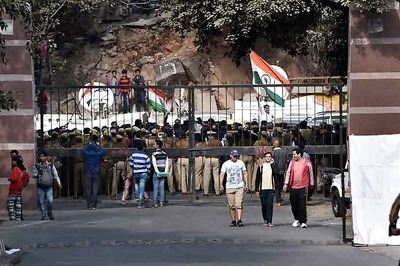
views
Colombo: The debt-trapped poor women in Sri Lanka often have to accord "sexual favours" to the private lenders against their loan installments, a UN expert on human rights said Tuesday.
Juan Pablo Bohoslavsky, an independent UN expert on impact of economic policies and infrastructure projects on the human rights also said "he knew of cases of the debt-trapped poor trying to sell their kidneys to repay loans."
Bohoslavsky made these startling claims in a statement while urging the Sri Lankan government to enact robust laws for mandatory assessment of its policies and projects on its citizens rights and save them from falling into the jaws of private loan sharks.
I found that among the large number of borrowers, the war-affected, poor women are specially targeted by micro-finance lenders. These institutions charge up to 220 per cent interest rates for their loans and apply compound interest," said Bohoslavsky.
"The mechanism has been designed to make huge profits for the lenders and put a very heavy burden on the shoulders of the largely poor female borrowers, he added.
Women are at times exposed to psychological and physical violence by these collectors and it was brought to my attention that, in some cases, they were coerced by collectors to exchange sexual favours' for outstanding instalments," said Bohoslavsky.
The expert added that he has also learnt "of cases of borrowers who have tried to sell their kidneys for money to repay their loans.
Attributing the poor's plight in the war-ravaged country partly to the absence of legal framework for assessment of the government's economic policies and projects on the rights of the people, Bohoslavsky said since the end of the civil war with the LTTE in 2009, large-scale infrastructure projects have been started across the island nation.
"The Sri Lankan legal framework, however, does not establish the obligation to conduct a comprehensive human rights impact assessment of such infrastructure projects before they are started."
"So, I advise the government to pass robust and comprehensive laws on the issue, based on existing international human rights standards," he said.
Urging the government to "undertake an assessment of the human rights impact of both its economic reform policies and infrastructure projects, said Bohoslavsky, also an expert on the effects of foreign debt on human rights.
Terming debt servicing as "the country's most important expenditure," Bohoslavsky said "a significant amount of borrowing is being allocated for this purpose.
He urged the government that "social spending should not be cut in order to repay the growing debts, if less harmful policy options are available."
"There are other options to consider. These include boosting domestic demand through progressive tax reforms, expanding social benefits, increasing minimum wages and renegotiating the debt with creditors in order to generate revenues to ensure that no one is left behind, Bohoslavsky stressed.
The strategy chosen by the government, as recommended by the International Monetary Fund (IMF), however, was to stabilise the economy by strengthening the fiscal and external sectors via international borrowing," he said.
"It also included developing mega infrastructure projects, many of them launched during the previous administrations," he added.


















Comments
0 comment